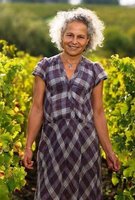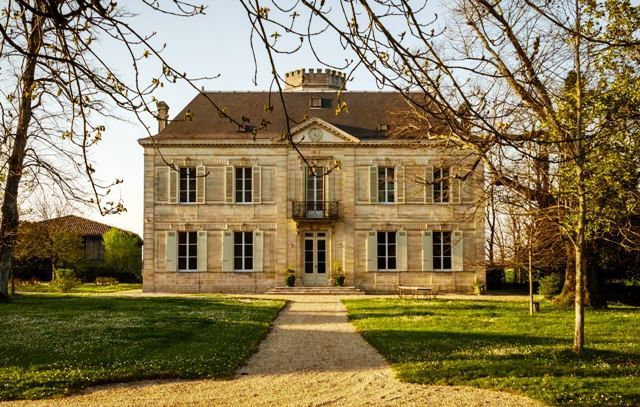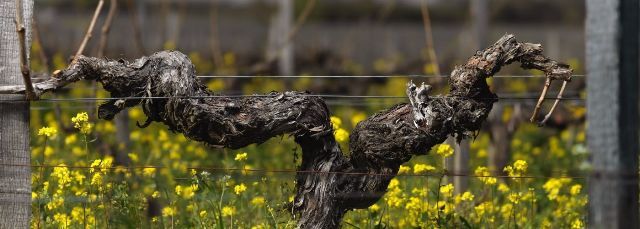organic wine, biodynamic wine, Demeter wine, na... Organic wine estates Châeau Ferriere, biodynamic wine-Demeter-bioydy...
Châeau Ferriere, biodynamic wine-Demeter-bioydyvin

It was always the aim of the owner families to keep the Château Ferrier in the family for as long as possible.
At the end of the 17th century, Mr. Gabriel Ferriere, a renowned ship broker, purchased this winery in the heart of the Margaux vineyards and gave it his family name. As royal mediator, it was first the father, later his son, who was primarily responsible for King Louis XV. served and would like to make and deliver great wines for the royal receptions.
Two centuries later, the owners of Château Ferriere were proud that the property was classified as a third-class (Troisieme Grand Cru Classée) château. Over time, Château Ferriere lost some of its former glory and in the late 1980s, after almost 300 years in the Ferriere family, it was taken over by another Bordeaux family called Merlaut. The owner became Bernadette Merlaut-Villars, who dedicated herself to restoring the old splendor of the Château Ferriere with new ideas.
A SECOND WOMAN BECOMES THE OWNER OF CHATEAU FERRIERE
After Bernadette Merlaut's accidental death, her daughter Claire inherited the property prematurely. She was only 25 years old. Since then, she has proven to be a passionate and avant-garde winemaker, asserting her own style and steering Château Ferriere towards biodynamic agriculture. Claire knows that one day she will pass on a perfectly healthy vineyard to her daughter Jeanne, the third generation owner of Château Ferriere.
A PIONEER OF BIODYNAMICS CAUSES THE INTEREST OF THE BORDELAISER WINE WORLD
With method and determination, Claire redesigned the entire production chain and returned to a form of virtuous viticulture: the reincorporation of biodiversity and the abandonment of the use of chemicals. This naturally led to a conversion process and the attainment of biodynamic certification for Château Ferriere's vineyards and wines.
As a pioneer of biodynamics in the Médoc, Château Ferriere inspires vocations. It became the Médoc division of the Mouvement de l’Agriculture BioDynamique (MABD). The technical team supports wineries in the transition, brings them together and prepares them for biodynamic methods.

Château Ferriere in the Médoc - Margaux
BRIEF INTRODUCTION TO BIODYNAMICS
To obtain biodynamic certification, two 100% natural practices are essential, in addition to following the lunar calendar. To enrich the soil, horn manure (preparation 500): Cow horns filled with manure are buried for 6 months in winter. After dynamization and stirring, it is pulverized and sprayed on the soil to revive biological activity. To stimulate the growth of the above-ground part of the vine, horn silica (preparation 501) is used: quartz rock is crushed, diluted and poured into cow horns, which are buried during the five summer months. The mixture is then dynamized and sprayed onto the vine to attract more light. In addition, herbal preparations are used for any preventive treatment: horsetail decoction, nettle tea, dandelion tea, valerian extract, fermented comfrey extract, etc.
THE PRACTICE OF BIODYNAMICS
Practicing biodynamics is not a recipe. The different preparations complement each other and work synergistically.
They are the focus of our technical itineraries based on their relevance, which depends in particular on the climate, the stage of vegetation and the possible presence of pathogens.
MORE THAN JUST BIODYNAMIC PRINCIPLES:
Green fertilization: broad bean, mustard, rye, oats, clover, fodder radish, fodder pea, fodder beet, bird's-foot trefoil, blue lupine, flax...
At Château Ferriere we go beyond the principles of biodynamics. The green manure also extends to the entire vineyard. The selection of seeds depends on the needs of each plot and the age of the vines. These seedlings keep the soil cool in summer and are particularly important for its structure (aeration, limiting compaction). They also limit their oxidation and therefore the occurrence of diseases. They welcome the micro and macro fauna of the vineyard, multiplying biodiversity, including microbial life in the soil. During its biological degradation, the biomass grows and becomes humus.
Finally, planting hedges around and within the plots restores plant corridors, which also benefits biodiversity.
THE OLD VINES - A UNIQUE HISTORICAL HERITAGE.
More than a third of the estate's vines, consisting of the four varieties Cabernet Sauvignon, Merlot, Cabernet Franc and Petit Verdot, were planted in the early 1950s. These old vines are not the result of clonal selection
and therefore have their own identity. With their very deep roots, they offer concentrated fruits with complex and powerful aromas. They are also used to plant new vines (mass selection).

Château Ferriere - Old Vine
CHÂTEAU FERRIERE - A FINE BIODYNAMIC WINE
The winery was certified organic in 2015 and biodynamic in 2018. Château Ferriere is also the only classified plant to be certified biodynamic twice by Demeter and Biodyvin. It is one of the few classified crops that is biodynamically certified not only in the vineyard but also in the cellar.
To achieve this, Ferriere develops his own fermentation starter culture, avoids any additives in winemaking and limits the addition of sulfur to the strict minimum.
20% of the wine is aged in small egg-shaped concrete barrels developed by the winery in 2012, and most of the aging takes place in oak barrels.
This approach creates wines that are more mineral, fresher and more vibrant, fully expressing the terroir in a completely natural way.
TECHNICAL DATA
24 hectares of vineyards in the center of the Margaux appellation
Deep gravel soil on limestone marl
Grape variety level: 51% Cabernet Sauvignon, 41% Merlot, 6% Petit Verdot, 2%
Cabernet Franc
The team: owner Claire Villars-Lurton, technical director Gérard Fenouillet, oenological consultant Eric Boissenot.
New Château Ferriere, Margaux 3ème Grand Cru Classé, biodynamic wine, from € 57.60Product no.: 045058.00 € / bottle(s) *
1 l = 77.33 €
Delivery period 1-3 days |
New Château Fonroque, Saint Emilion Grand Cru Classé, biodynamic wine, from € 41.60Product no.: 045542.00 € / bottle(s) *
1 l = 56.00 €
Delivery period 1-3 days |
New Château Mazeyres, Pomerol AOC, biodynamic wine, from € 33,60Product no.: 045234.00 € / bottle(s) *
1 l = 45.33 €
Delivery period 1-3 days |
![Biowein [pur] Hartl - organic wine shipper](/WebRoot/Store7/Shops/87b180e2-5584-4f7d-8168-acd5dfe63e0b/Styles/Sharp[3]/logo.png)






